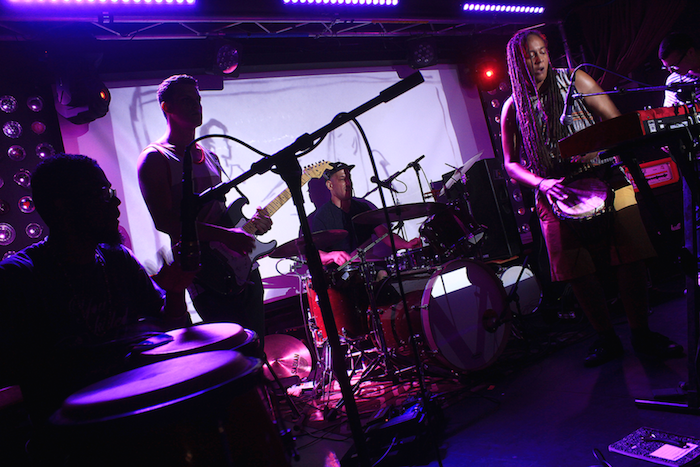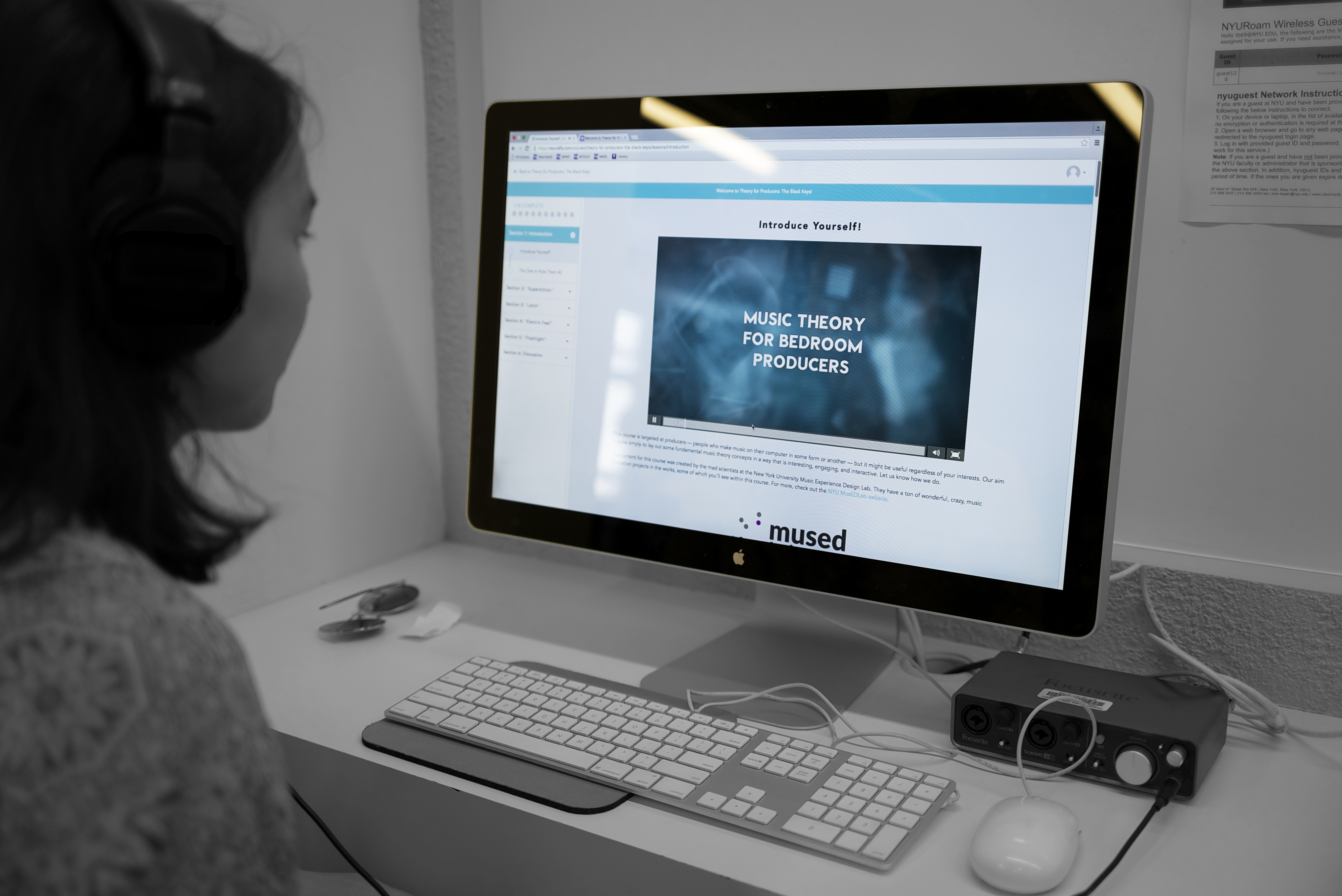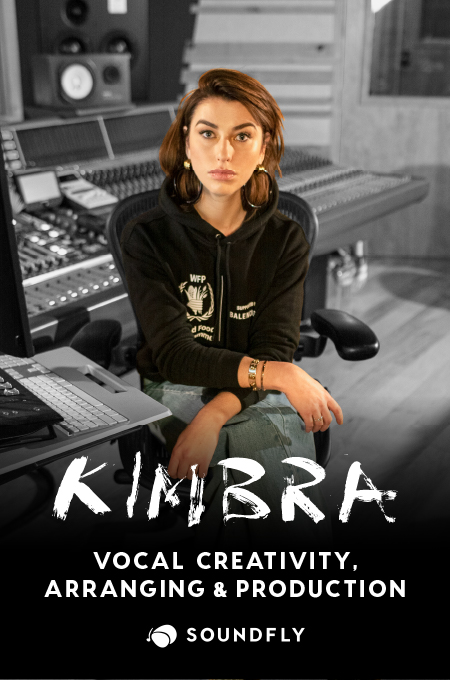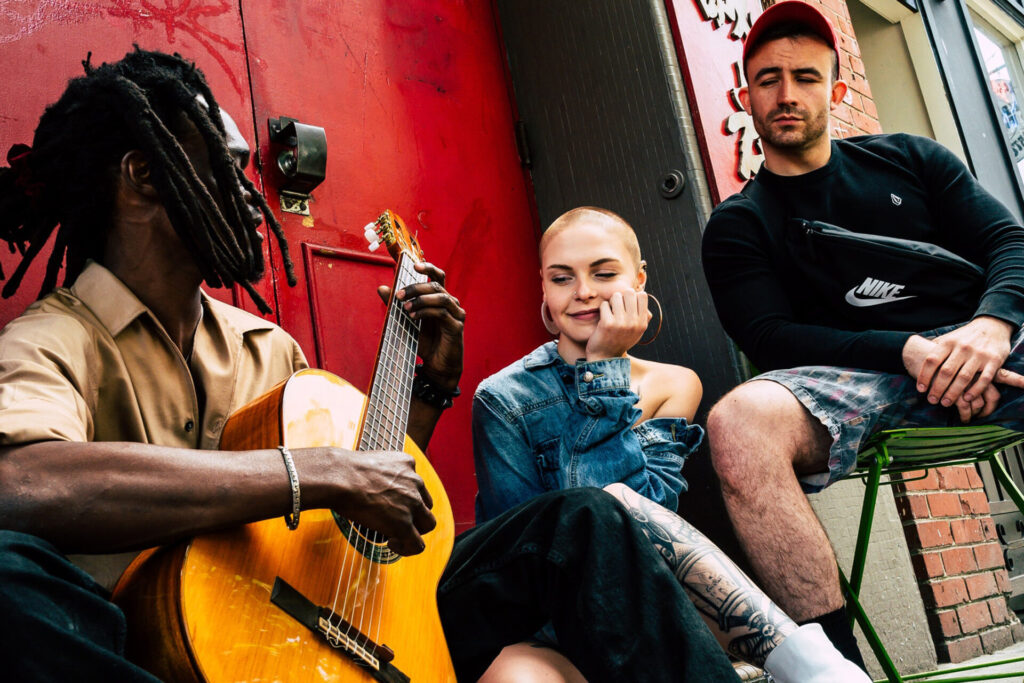+ Our brand new course with The Dillinger Escape Plan’s Ben Weinman teaches how to make a living in music without making sacrifices. Check out The Business of Uncompromising Art, out now exclusively on Soundfly.
For new musicians and seasoned ones alike, navigating the murky waters of booking shows can be a tricky, soul-crushing affair. DIY booking is a part of being a musician that many of us wish we could easily hand off to someone else, but doing so isn’t realistic for most starting bands.
Tours, big local shows, and slots at important events like summer festivals and regional showcases are there for the taking for musicians who create strong music and knowhow to craft engaging and cohesive booking proposals.
Here are some tips to help you create the kind of booking proposal that get results.
Is it even worth your time?
Before you launch into writing a detailed, thoughtful booking inquiry, it’s important to ask whether you have a realistic chance of landing the show or not. Opening for your favorite band at the Madison Square Garden probably sounds like a dream, but if you’re still booking your own shows, there’s an extremely high likelihood that your booking proposal will be promptly ignored and most likely never seen at all.
That’s just not how things work on the upper echelons of big stages and arenas; instead, focus your energies on supporting bands just slightly bigger than you. This tends to lead to organic growth much more fluidly than trying to skip up a few levels beyond where the industry knows you are.
You should do everything you can to punch above your weight when it comes to booking, but realize that there are limits.
Start with the deets.
A booking proposal without details is likely to annoy the person who reads it and diminish your chances of working with them. Key bits of information like who your band is, links to stream your music, the date or range of dates you’re interested in playing, and some background around your music will give the person you’re contacting what they need to know to make a decision.
Some venues have specific things they’d like you to cover when you book with them, so it’s important to realize every performance opportunity is unique. Do your research and don’t leave details out. If you’re hoping to get paid a certain amount of money for your performances, include that information as well.
Be thoughtful and straightforward.
The tone your booking proposals should strike is a balance between personal and professional. There’s a human being on the other end of most of the booking emails you send off, so it’s in your best interest to write like one as well.
Be polite and genuine, but also get to the point and clearly lay out your case for why you should be awarded the show you’re asking about. If you aren’t likely to bring lots of people to the show, don’t say otherwise. Pumping up your numbers might get you a show in the short-term, but you’ll end up damaging your relationship with the venue or promoter beyond repair. If you’re new and looking for experience, send streaming links to your best recorded songs and consider saying you’re open for show opportunities.
If you have lots of experience and are trying to land an important show, list things like how many people you’re likely to bring out, and briefly highlight things like local press mentions and performance history in the area.
+ Learn production, composition, songwriting, theory, arranging, mixing, and more; whenever you want and wherever you are. Subscribe for full access!
Focus on readability and cohesion.
Your efforts won’t pay off if your proposals are poorly written and unreadable. The gatekeepers who award shows to musicians realize that most performers they hear from aren’t professional writers, but they still expect some degree of professionalism. Because if you can’t be bothered to write a decent email, how do they know you’re going to put effort into your live show, or marketing for it?
So once you’ve laid out the details and main message of your proposal, read it back a few times to make sure it makes sense. Look for spelling and grammar errors, and ask yourself what you’d think if someone sent it to you.
If you’re just starting out in the world of DIY booking, have a bandmate or friend peruse your first couple of messages and get their feedback. You’ll get better over time as long as you focus on making your messages straightforward, engaging, and readable.
A certain amount of copying and pasting is fine during this process, but realize that slipping up and including the wrong venue or person’s name can be embarrassing and might even hurt your efforts. You’re better off creating thoughtful messages and looking for performance opportunities you have a good shot at landing instead of blazing through a tall list of contacts with form emails.
Don’t take rejection personally.
This is a tough one for many of us. You could do everything right with show booking and still not find the results you’re looking for. Don’t let being told “no thanks” or getting ignored get to you.
Whether it’s the fact that your band can’t bring enough people to shows yet or that your music isn’t a good fit, you’re very likely to get rejected during this process at some point and in some way. If the folks you contact give you feedback, take what they’re telling you into account and move forward. If your messages don’t get replied to after a polite follow-up, circle back to the way you’re writing your proposals because that’s a sign they aren’t doing what they’re supposed to.
Realize that booking is tough business for not only musicians, but also venues and promoters. If the shows you’re trying to land are worth playing, the people you contact are most likely inundated with emails. Rather than getting bitter, keep trying and keep making music. If your recorded material isn’t strong or you haven’t connected with an audience yet, that could be why show booking doesn’t pan out.
Improve your music with creativity & curiosity on Soundfly.
Subscribe to our YouTube channel for weekly videos, or join Soundfly’s all-access membership to all of our artist-led online music courses, an invite to join our Discord community forum, exclusive discount perks from partner brands, access to artist Q&As and workshops, and more.





